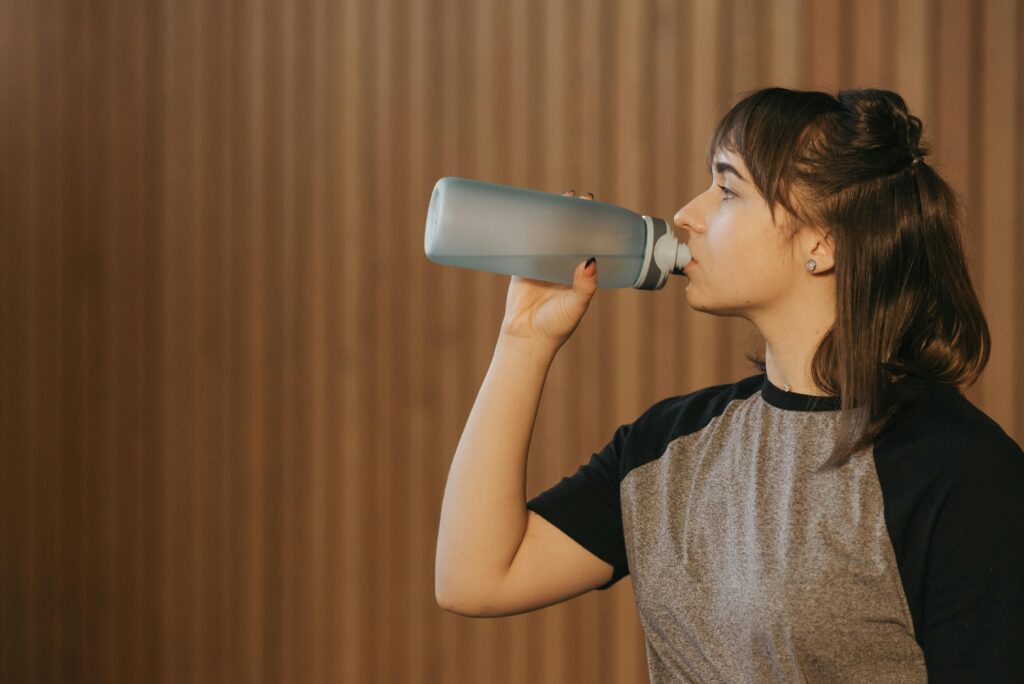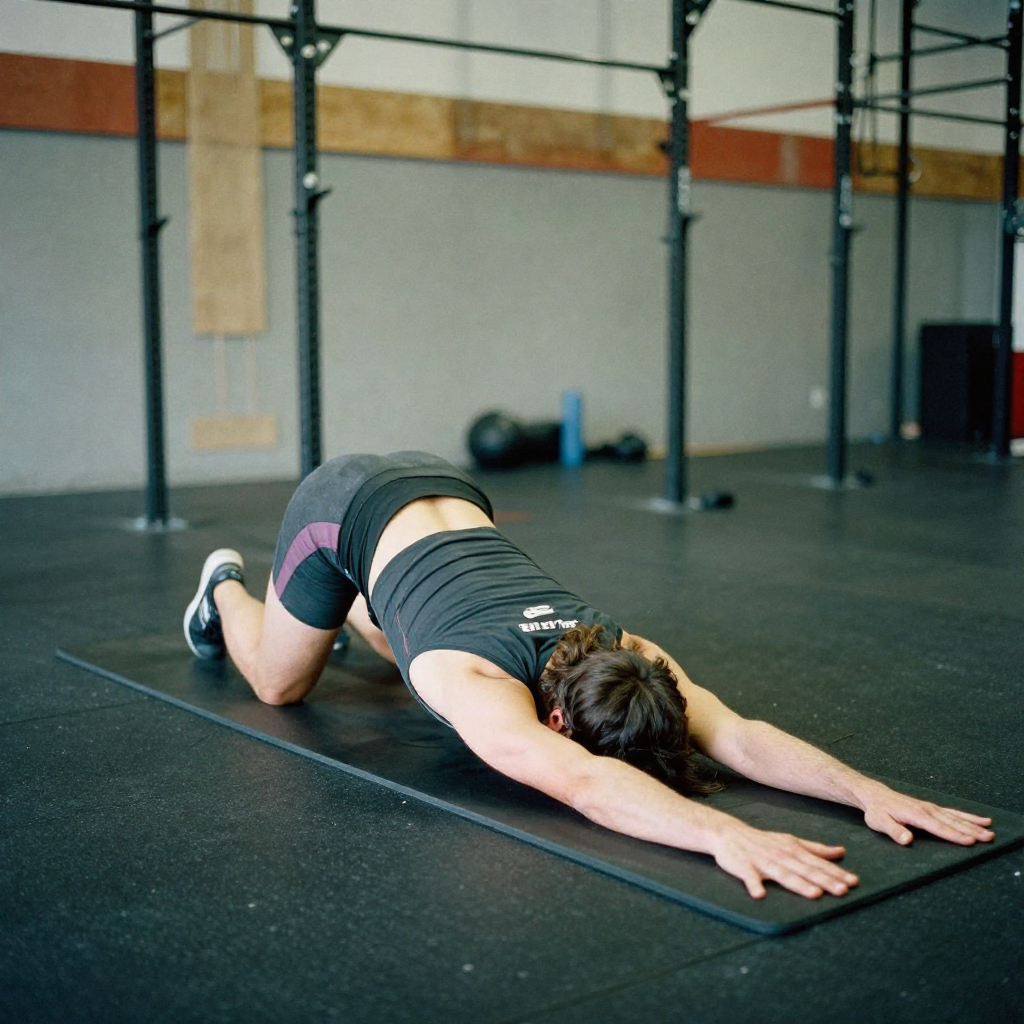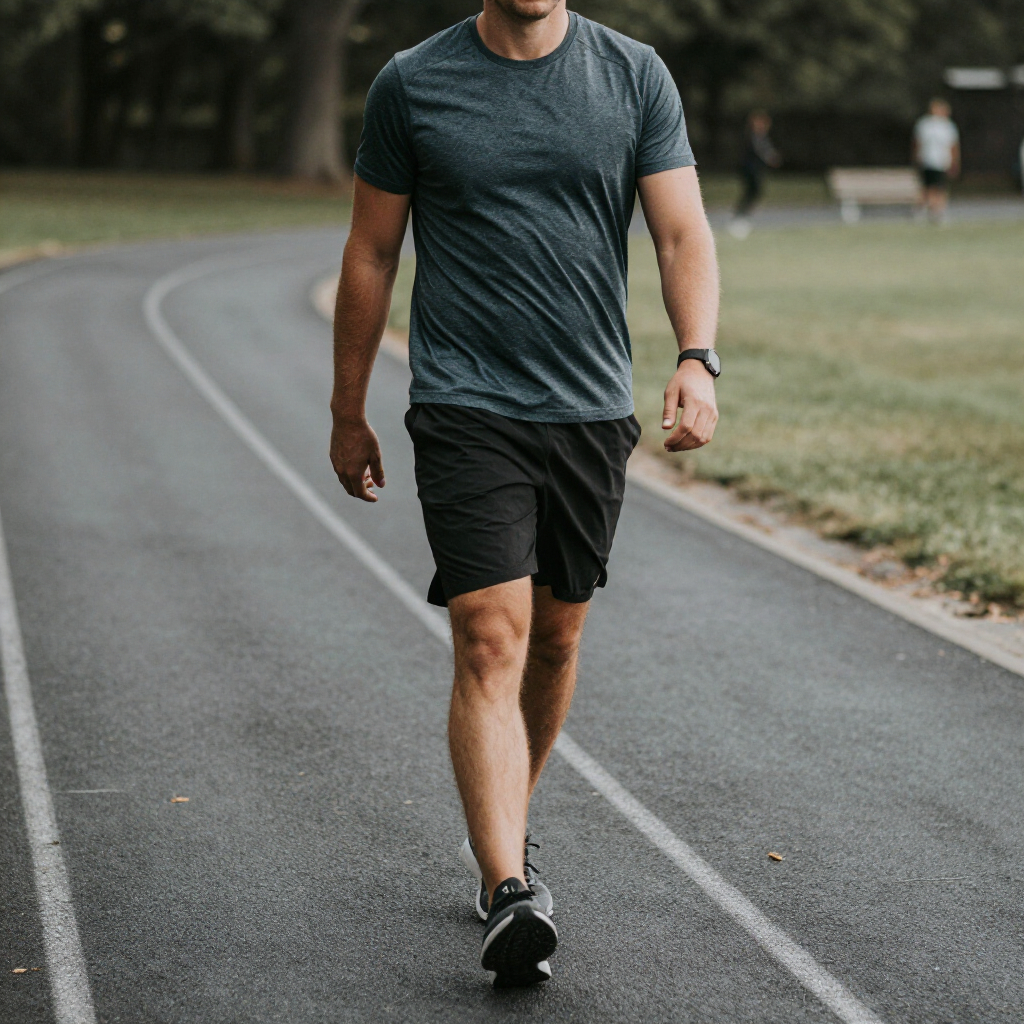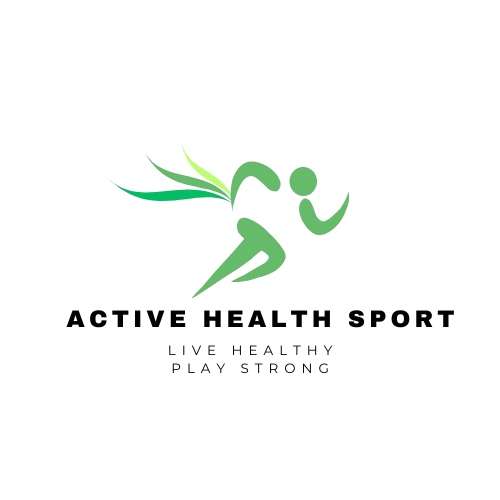Introduction | Why Hydration is Key
After an intense workout, your body undergoes a series of processes to repair and recover. Hydration is at the center of these processes, helping to rebuild muscle tissue, replenish fluids lost through sweat, and restore vital energy levels. Without adequate hydration, recovery can be delayed, leading to fatigue, muscle soreness, and even reduced performance in your next workout.
However, hydration is not just about drinking water, it’s about replacing the electrolytes and nutrients your body loses during exercise. Despite being a fundamental aspect of fitness, it is often overlooked in favor of protein shakes or stretching routines. Hydration is often seen as a simple concept, just drink water and you’re good to go, but the body’s needs are more nuanced, especially after exercise.
When you sweat, you lose not only water but also electrolytes like sodium, potassium, and magnesium, which are essential for muscle function and fluid balance. Rehydrating with just water may not fully restore these lost nutrients, which is why it’s important to incorporate drinks that contain electrolytes or other rehydration solutions. Let’s dive into the detailed aspects of Hydration in Post-Workout Recovery!
The Science Behind Hydration and Recovery
When you exercise, the body loses not only water but also vital electrolytes like sodium, potassium, and magnesium. These electrolytes play a critical role in maintaining muscle function, energy production, and regulating internal systems like fluid balance. Without proper rehydration, you might experience several negative consequences that hinder your recovery process.
Muscle Fatigue: Dehydration can impair your muscles’ ability to contract properly. As a result, you may experience muscle cramps or feel weaker during subsequent workouts.
Delayed Recovery: Water is essential for transporting nutrients and oxygen to damaged tissues, especially after intense physical exertion. If you’re dehydrated, this nutrient supply slows down, which directly impacts the healing process and delays recovery. It means your muscles won’t rebuild as quickly, leading to longer recovery times and potentially a lower quality of performance in your next workout.
Impaired Thermoregulation: Hydration is also vital for regulating body temperature. When you sweat during exercise, your body relies on water to cool itself down. Without enough water, thermoregulation becomes less efficient, increasing the risk of overheating.
Reduced Energy: Dehydration causes a drop in blood volume, which makes it harder for your heart to circulate oxygen and nutrients to your muscles. As a result, your energy levels take a hit, leaving you feeling fatigued, even if you’re not engaged in physical activity.
Incorporating proper hydration into your recovery strategy can prevent these issues, allowing your body to restore itself more effectively and prepare for the next challenge.
How Much Water Do You Need After Exercise?
Your hydration needs can vary depending on factors like workout intensity, duration, and individual body weight. Here are some general guidelines to help you replace fluids after exercise:
- Weigh Yourself Before and After Exercise: A good way to estimate how much water you need is by weighing yourself before and after your workout. For every pound lost during the session, you should aim to drink 16–20 ounces of water. This provides a simple and effective method to replenish lost fluids and prevent dehydration.
- Monitor Your Urine Color: A practical way to gauge your hydration status is by checking the color of your urine. Ideally, your urine should be light yellow, which indicates proper hydration. If your urine is darker, it’s a sign that you need to drink more fluids. Keep in mind that certain foods or supplements can affect urine color, so use this as a general guideline rather than a strict rule.
- Hydrate Gradually: It’s important to hydrate gradually after exercise, as drinking too much water too quickly can overwhelm your system. Aim to replace fluids over 2–4 hours after your workout for better absorption. Sipping water slowly allows your body to process it more efficiently, preventing bloating or discomfort.
Also Read the Latest: Hydration Myths vs. Facts | What Americans Should Know
Additional Tips for Effective Post-Exercise Hydration:
- Electrolytes Matter: In addition to water, you may need to replenish electrolytes like sodium, potassium, and magnesium, especially after intense or prolonged exercise. Sports drinks or electrolyte supplements can help restore these vital minerals.
- Avoid Overhydration: While staying hydrated is crucial, drinking too much water in a short period can dilute your sodium levels, leading to a condition called hyponatremia. To avoid this, focus on balanced hydration that includes electrolytes when needed.
- Listen to Your Body: Thirst is your body’s natural signal that it needs water. However, after exercise, you might not feel thirsty right away, even if you’re dehydrated. Therefore, it’s essential to make hydration a priority and drink water regularly after physical activity.

What are the Rehydration Tips for Effective Recovery?
Here are actionable tips to ensure optimal hydration post-workout:
- Start Hydrating Early
Don’t wait until the end of your workout. Begin rehydrating during exercise, especially if it lasts over an hour. - Use Electrolyte Drinks
Water alone may not be enough after intense activity. Electrolyte-rich drinks help replenish lost minerals and improve fluid absorption. - Incorporate Hydrating Foods
Foods like watermelon, oranges, cucumbers, and soups provide water and essential nutrients. - Avoid Dehydrating Beverages
Skip alcohol and caffeine immediately after working out, as they can exacerbate dehydration. - Keep a Water Bottle Handy
Make hydration a habit by always having water within reach during and after exercise.
Electrolytes and Their Role in Recovery
Electrolytes like sodium, potassium, and calcium are vital for:
- Muscle Repair: Sodium and potassium balance ensure proper muscle contraction and relaxation.
- Preventing Cramps: Magnesium helps reduce muscle spasms and cramps.
- Maintaining Blood Pressure: Sodium supports blood volume and pressure during recovery.
Opt for natural electrolyte sources like coconut water, bananas, and leafy greens, or use specialized sports drinks.
Benefits of Proper Hydration in Post-Workout Recovery
Hydration impacts various aspects of your recovery:
1. Speeds Up Muscle Repair
Water transports nutrients like amino acids and glycogen to muscles, accelerating repair.
2. Reduces Inflammation
Staying hydrated helps flush out toxins and reduce inflammation in overworked tissues.
3. Boosts Energy Levels
Rehydration restores blood volume and oxygen delivery, combating post-workout fatigue.
4. Prevents Muscle Soreness
Proper hydration alleviates delayed onset muscle soreness (DOMS) by supporting tissue repair.
5. Improves Mental Clarity
Water aids brain function, helping you stay focused and energized after a workout.
Common Myths About Post-Workout Hydration
Myth 1: Water Alone is Enough for Recovery
While water plays a significant role in post-workout recovery, it may not be sufficient on its own, particularly after long or intense exercise sessions. During exercise, you lose not just water but also essential electrolytes like sodium, potassium, and magnesium through sweat. These electrolytes help regulate muscle function, fluid balance, and nerve signaling.
Without replenishing these minerals, you could experience muscle cramps, fatigue, or slower recovery. That’s why it’s essential to include drinks or foods that replenish both fluids and electrolytes (such as sports drinks or coconut water) to fully support recovery and performance.
Myth 2: You Only Need to Hydrate When You’re Thirsty
Thirst is often considered a natural signal that your body needs water, but it’s not always the most reliable indicator of hydration status, especially post-exercise. After intense physical activity, your body can lose significant fluids, and thirst may not trigger until dehydration has already set in.
To prevent this, it’s important to adopt a proactive approach to hydration. Aim to drink small amounts of water or an electrolyte solution throughout your workout and continue hydrating steadily after exercise to ensure proper rehydration.
Myth 3: Any Fluid Will Help You Rehydrate
Not all fluids contribute equally to hydration. While any beverage may quench your thirst, the quality of the fluid matters in terms of rehydration. Sugary sodas, alcohol, or caffeine-heavy drinks like coffee or energy drinks can actually dehydrate you or hinder recovery because they have diuretic effects, causing your body to lose more water.
Instead, focus on water, electrolyte drinks, or hydrating foods like fruits and vegetables that provide both hydration and essential nutrients. These fluids help restore lost electrolytes and keep your body functioning at its best.
Also Read: Top Signs You’re Dehydrated and How to Fix It Quickly
What are the Real-Life Examples of Hydration in Action?
Case Study 1: (Rachel’s Amess) Post-Marathon Recovery
Rachel, an avid marathon runner from Chicago, struggled with frequent muscle cramps after crossing the finish line in her recent race. Initially, she would hydrate with just water, but continued to experience discomfort during recovery.
After consulting with a sports nutritionist, Rachel decided to incorporate electrolyte drinks into her post-race routine, along with hydrating foods such as oranges, bananas, and cucumbers. Within weeks, she noticed a significant reduction in muscle cramps, a faster recovery rate, and an overall boost in her energy levels.

Case Study 2: (Ethan JayDavila) Weightlifting Routine
Ethan, a dedicated weightlifter from Los Angeles, often felt fatigued and sluggish after his intense gym sessions, which affected his performance and muscle gains. He realized that, despite drinking plenty of water, he wasn’t replenishing the electrolytes lost during his workout. After tracking his water intake and introducing magnesium-rich foods, like spinach and almonds, into his diet, Ethan began to see a marked improvement.
His energy levels increased, muscle soreness decreased, and he even noticed better muscle growth. With better hydration strategies, including water and nutrient-rich foods, Ethan transformed his post-workout recovery, leading to more productive gym sessions and faster progress.
Also Read the Latest: Here’s Why Water-Rich Fruits Are Essential for Hydration
Case Study 3: (Olivia Anderson’s) Cycling Adventures
Olivia, a passionate cyclist based in Austin, Texas, loved long-distance rides through the city’s scenic trails. However, she often faced energy crashes and dehydration during her rides. After researching optimal hydration techniques, she began implementing a more structured hydration plan, drinking both water and electrolyte-infused beverages before, during, and after each ride.
Olivia also added hydrating snacks like watermelon and coconut water to her routine. As a result, she experienced fewer instances of fatigue, muscle cramps, and dehydration during her cycling sessions.
These case studies (shared with the Active Health Sport Team) show how hydration plays a pivotal role in improving recovery and performance for athletes and fitness enthusiasts. Whether you’re running a marathon, lifting weights, or cycling, making the right hydration choices can have a profound impact on your overall fitness journey.
Combining Nutrition with Hydration
Pairing proper hydration with a nutrient-rich post-workout meal enhances recovery. Ideal choices include:
- Protein Shakes: For muscle repair
- Whole Grains: To replenish glycogen stores
- Fruits and Vegetables: For vitamins and additional hydration
Tools and Apps to Help You Stay Hydrated
- Hydro Coach: Tracks your water intake and sets reminders.
- MyFitnessPal: Includes hydration tracking as part of overall health goals.
- HidrateSpark: Syncs with a smart water bottle to monitor your fluid intake.
Final Thoughts | Hydration: The Cornerstone of Recovery
When you engage in physical activity, your body loses significant amounts of water and essential electrolytes through sweat. If not properly replenished, dehydration can hinder your recovery and impact muscle repair, energy levels, and performance.
At Active Health Sport, we believe that a comprehensive approach to fitness includes not only physical training but also recovery strategies that help you perform at your best. Hydration is a cornerstone of that approach, ensuring your body has the resources it needs to heal and grow stronger after each workout.
Start implementing these hydration recovery tips today, and you’ll be amazed at how much better you feel, both during and after exercise. Stay hydrated, and take your fitness journey to the next level! That’s all from today’s blog, guys! I hope you found this blog post helpful, and if you have any questions on your mind, feel free to comment below or email us your queries.
You might also like…
- Why Mobility Matters More Than Muscle for CrossFit Progress
 In CrossFit culture, strength numbers often steal the spotlight: heavier deadlifts, faster WOD times, and bigger PRs. While muscle and power are essential, they are not the limiting factor… Read more: Why Mobility Matters More Than Muscle for CrossFit Progress
In CrossFit culture, strength numbers often steal the spotlight: heavier deadlifts, faster WOD times, and bigger PRs. While muscle and power are essential, they are not the limiting factor… Read more: Why Mobility Matters More Than Muscle for CrossFit Progress - Zone-2 Walking for CrossFit Athletes Explained
 In CrossFit, conditioning is often associated with intense, fast-paced WODs, high heart rates, and breathless finishes. While this intensity builds power and short-term fitness, it does not fully support… Read more: Zone-2 Walking for CrossFit Athletes Explained
In CrossFit, conditioning is often associated with intense, fast-paced WODs, high heart rates, and breathless finishes. While this intensity builds power and short-term fitness, it does not fully support… Read more: Zone-2 Walking for CrossFit Athletes Explained - How Low-Intensity Walking Restores the Nervous System
 CrossFit is designed to test physical limits. Heavy lifts, fast-paced metabolic conditioning, and complex gymnastic movements demand not only muscular strength but also significant nervous system output. While most… Read more: How Low-Intensity Walking Restores the Nervous System
CrossFit is designed to test physical limits. Heavy lifts, fast-paced metabolic conditioning, and complex gymnastic movements demand not only muscular strength but also significant nervous system output. While most… Read more: How Low-Intensity Walking Restores the Nervous System

Kait Amazra is the founder and lead writer of Active Health Sport. With over 25 years of experience in health, fitness, and wellness education, Kait combines professional expertise with a passion for helping people live stronger, healthier, and more balanced lives.
As a licensed health and fitness professional, Kait has worked alongside industry experts to deliver evidence-based insights on physical activity, nutrition, recovery, and holistic well-being. Through Active Health Sport, Kait’s mission is to make trusted, practical, and science-backed health information accessible to everyone, from beginners building new habits to athletes seeking peak performance.

